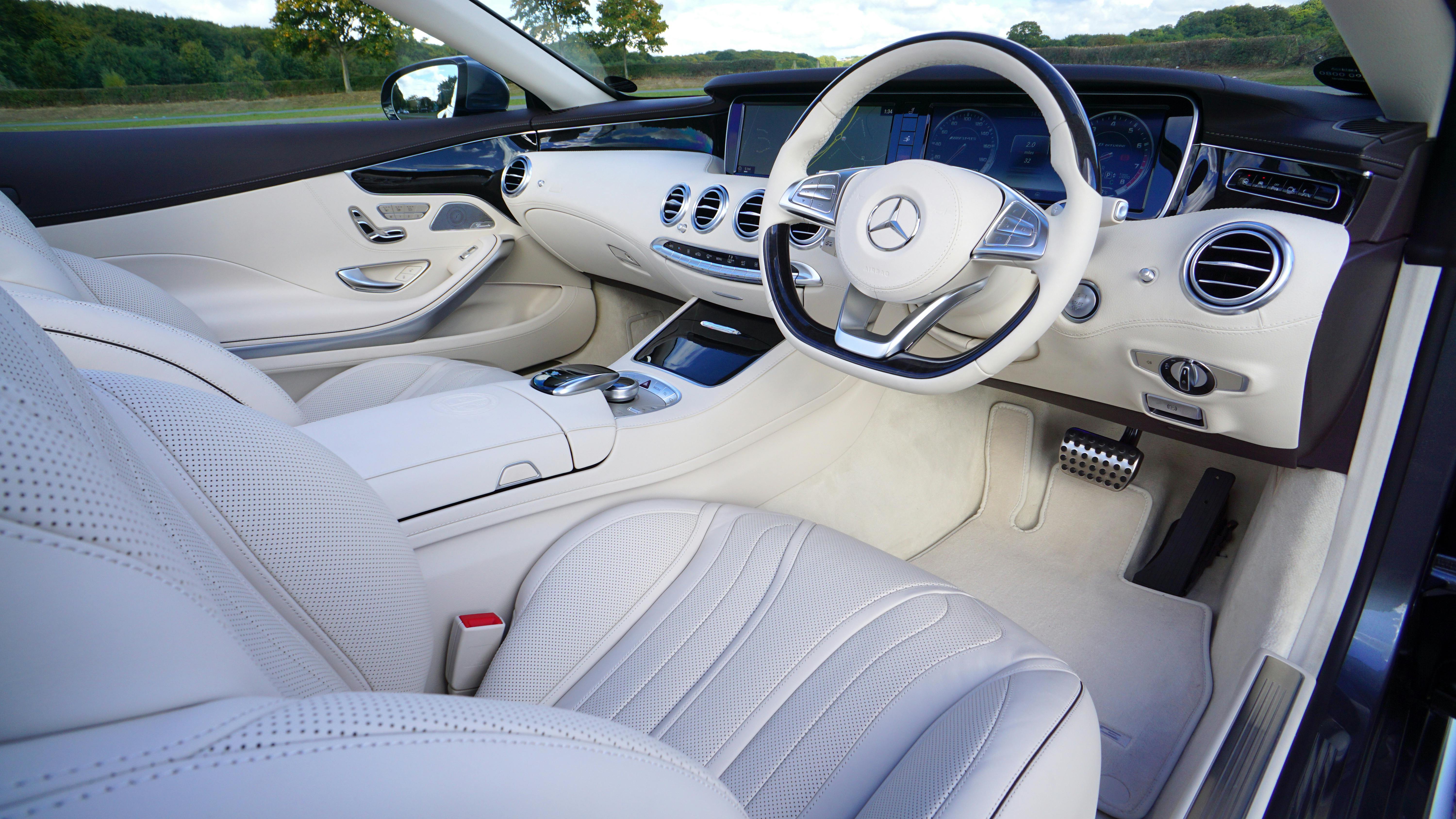Leasing vs. Buying a New Car: Which Is Better?
Navigating the Crossroads: Leasing vs Buying a New Car
Deciding between leasing and buying a new car is a significant financial and lifestyle choice that requires a careful examination of personal circumstances, preferences, and future plans. This comprehensive guide aims to shed light on the intricacies of each option, providing you with the knowledge needed to make an informed decision that aligns with your budget, lifestyle, and long-term goals.
TL;DR: This article delves into the financial implications, pros and cons of both leasing and buying a new car. Whether you’re attracted to the idea of driving a new vehicle every few years without the commitment of a purchase, or you’re considering the long-term benefits of buying and owning a car, understanding each approach’s nuances can significantly impact your decision-making process.
Table of Contents:
1. Introduction to the Dilemma of Leasing vs Buying a New Car
2. The Benefits of Leasing a New Car
3. The Drawbacks of Leasing
4. The Advantages of Buying a New Car
5. The Cons of Buying a Car
6. Making the Decision: Leasing vs Buying
Navigating the decision between leasing and buying a new car can feel like standing at a crossroads. Each path leads to distinct financial landscapes, lifestyle implications, and commitments. In the pursuit of new vehicles, potential car owners must weigh their options carefully, considering the immediate joy of driving off the lot in a brand new car against the long-term satisfaction and financial benefits of vehicle ownership. As we dive into the intricate world of auto financing, remember, the best choice is the one that aligns with your personal goals, financial situation, and the future you envision.
Financial Implications of Leasing vs. Buying
The decision between leasing and buying a car bears significant financial implications both in the short and long term. Initially, leasing a car appears financially attractive due to its lower upfront payments relative to buying. Leasing companies typically require a smaller down payment, if any, and offer monthly payments that are often less than those associated with loan repayments on a purchased vehicle. This lower entry cost makes leasing an appealing option for individuals desiring a new car without a substantial immediate financial burden.
However, the seemingly lower costs of leasing can be deceptive when considering the long-term financial landscape. Over time, the cumulative costs associated with leasing can surpass those of buying, especially when factoring in end-of-lease fees and penalties. Lease agreements include specific conditions such as mileage limits and standards for wear and tear. Exceeding these mileage limits or returning a car with damage beyond normal wear can incur significant additional charges. Furthermore, lessees must return the vehicle at the end of the lease term without any equity, regardless of the amount spent during the lease duration.
On the contrary, buying a car requires a higher initial financial outlay, including the down payment and potentially higher monthly payments due to loan interests. This upfront investment, however, transitions into ownership equity. Once the loan is fully repaid, the owner is free from monthly payments and possesses the vehicle’s full value, which can be beneficial for long-term financial planning. Additionally, without the constraints of a lease agreement, there are no additional fees for mileage overruns or wear and tear, making buying more economically sensible for those planning to keep their car for many years.
In summary, leasing offers an appealing short-term financial advantage with lower initial costs but includes limitations and potential fees that may increase overall expenditure. Buying, while more financially demanding upfront, leads to ownership, potentially offering better long-term economic benefits by eliminating ongoing payments and allowing full control over the vehicle’s use and condition.
Financial Implications of Leasing vs. Buying
The decision between leasing and buying a car bears significant financial implications both in the short and long term. Initially, leasing a car appears financially attractive due to its lower upfront payments relative to buying. Leasing companies typically require a smaller down payment, if any, and offer monthly payments that are often less than those associated with loan repayments on a purchased vehicle. This lower entry cost makes leasing an appealing option for individuals desiring a new car without a substantial immediate financial burden.
However, the seemingly lower costs of leasing can be deceptive when considering the long-term financial landscape. Over time, the cumulative costs associated with leasing can surpass those of buying, especially when factoring in end-of-lease fees and penalties. Lease agreements include specific conditions such as mileage limits and standards for wear and tear. Exceeding these mileage limits or returning a car with damage beyond normal wear can incur significant additional charges. Furthermore, lessees must return the vehicle at the end of the lease term without any equity, regardless of the amount spent during the lease duration.
On the contrary, buying a car requires a higher initial financial outlay, including the down payment and potentially higher monthly payments due to loan interests. This upfront investment, however, transitions into ownership equity. Once the loan is fully repaid, the owner is free from monthly payments and possesses the vehicle’s full value, which can be beneficial for long-term financial planning. Additionally, without the constraints of a lease agreement, there are no additional fees for mileage overruns or wear and tear, making buying more economically sensible for those planning to keep their car for many years.
In summary, leasing offers an appealing short-term financial advantage with lower initial costs but includes limitations and potential fees that may increase overall expenditure. Buying, while more financially demanding upfront, leads to ownership, potentially offering better long-term economic benefits by eliminating ongoing payments and allowing full control over the vehicle’s use and condition.

Economic Benefits of Car Leasing
Leasing a car presents numerous economic benefits that appeal to a wide range of drivers. One of the primary advantages is the aspect of lower down payments and monthly payments compared to buying a car outright. This financial flexibility is especially attractive for individuals who prefer to allocate their resources to other investments or savings. Unlike purchasing a vehicle, where substantial down payments are often required to secure a loan with reasonable monthly payments, leasing allows for much smaller out-of-pocket expenses at the contract’s initiation.
The structure of a lease also keeps cash flow more fluid for lessees. Without the need for a significant initial financial outlay, lessees can maintain better liquidity, which can be particularly advantageous in uncertain economic times or for those who prefer to have available cash for unexpected expenses. This benefit aligns well with modern financial management strategies that emphasize flexibility and the importance of an emergency fund.
Furthermore, leasing opens up the possibility for many to drive a higher-end vehicle than they might afford if purchasing. This is because the lessee only pays for the depreciation of the car during the lease term, not the full purchase price. As a result, this can enhance the driving experience significantly, allowing access to newer models with advanced technology, superior performance, and higher safety standards without a correspondingly higher cost. This factor is highly appealing for car enthusiasts and those who place a premium on the quality of their driving experience but might be constrained by budgetary considerations when it comes to outright purchases.
Flexibility and Convenience in Car Leasing
One of the key attractions of leasing a vehicle is the flexibility it offers, particularly the ability to change cars every few years. This not only ensures that lessees can enjoy the latest in technology, safety features, and fuel efficiency but also sidesteps the hassle and potential financial loss associated with selling or trading in a vehicle. For those who enjoy keeping up with automotive advancements or whose vehicle needs may change over time, leasing provides an ideal solution.
Lease contracts often include comprehensive warranty coverages that align with the lease term, which can alleviate the worry and financial strain of unexpected repairs. Most major repairs will fall under warranty, ensuring that lessees are not burdened with hefty out-of-pocket expenses. This coverage, coupled with the routine maintenance packages that lease agreements sometimes offer, can make leasing a more convenient and predictable option than ownership, where older vehicles might incur significant repair costs as they age.
Tax Advantages for Business Owners
For business owners, car leasing can present attractive tax deductions that enhance the vehicle’s financial efficiency as a business expense. The option to write off lease payments against business income can significantly reduce the net cost of the lease. This advantage is particularly important for businesses where cash flow management is critical. The distinction between personal and business leasing clarifies that these tax benefits are primarily available to companies and self-employed individuals using the leased vehicle for business purposes, underlining the importance of documentation and adherence to tax laws to fully realize these advantages.
Mitigating Depreciation and Resale Concerns
One of the inherent downsides of buying a new car is its rapid depreciation, particularly in the first few years after purchase. Leasing shields the lessee from this depreciation curve. Since the leasing company retains ownership of the vehicle, the lessee is insulated from the loss in value over time. This arrangement eliminates concerns over the car’s resale value or the challenges involved in selling the vehicle when it’s time for something new. For those wary of the financial implications of depreciation, leasing offers a way to enjoy a new car without the worry of its diminishing value over time.
Lease Contract Customization
Lease agreements provide a level of customization not typically available with car purchases. Lessees can select terms that accommodate their specific needs, such as mileage allowances and wear-and-tear provisions. This flexibility allows drivers to tailor their contracts to fit their driving habits and personal circumstances closely. Additionally, the potential to negotiate terms within a lease agreement offers lessees a degree of control over the specifics of their contract, further aligning the lease with their individual or business requirements. This customization can make leasing an attractive option for those with particular needs or preferences that a standard purchase might not as comfortably accommodate.

Mileage Restrictions and Penalties
Leasing a vehicle comes with an array of benefits, such as driving a new car every few years without the hassle of selling an old one. However, one significant limitation that often catches lessees off guard is the mileage restriction and the accompanying penalties for exceeding it. These restrictions are a fundamental part of most lease agreements, designed to maintain the vehicle’s residual value. They dictate how many miles a lessee can drive the car during the lease term, usually expressed on an annual basis.
Typically, lease agreements set the mileage limit between 10,000 to 15,000 miles per year, although some may offer as low as 8,000 or as high as 20,000. Exceeding these limits incurs penalties that can be steep, often calculated per mile over the agreed limit. Charges can range from $0.10 to $0.25 per mile, which can add up quickly. For instance, driving an extra 1,000 miles over the limit could result in an additional charge of $100 to $250 at the end of the lease term.
This aspect of leasing can be particularly challenging for individuals who have high commuting needs, those living in areas with significant driving distances between destinations, or those who simply enjoy long road trips. It imposes a need for lessees to closely monitor their driving habits and mileage throughout the lease term, which can add an element of constraint and stress to the driving experience.
For someone considering leasing as an option, it’s crucial to realistically assess their average yearly mileage before signing a lease agreement. One should not only account for their routine commuting mileage but also factor in occasional long trips that could significantly contribute to the total mileage. Opting for a higher mileage limit from the start, despite the slightly increased monthly payments, can be a more cost-effective strategy than paying hefty overage fees at the end of the lease.
Moreover, some leasing companies offer the purchase of additional miles upfront at a lower rate than the penalty rate for exceeding the limit. This option could provide a buffer for unexpected trips and is often less expensive than paying for excess miles at lease end.
In summary, while the flexibility of driving a new vehicle every few years is appealing, the mileage restrictions and penalties associated with leasing require careful consideration. Potential lessees should evaluate their driving needs against the restrictions imposed by the lease agreement and consider whether the costs associated with exceeding these limits could outweigh the benefits of leasing.

Long-term Ownership and Economic Favorability
Purchasing a new car involves a significant financial commitment, which, for many, is mediated through a loan. At the outset, this might seem like a daunting prospect compared to the lower monthly payments associated with leasing. However, the long-term financial benefits of buying a new car often tip the scales in its favor for those who are able to commit. Upon completing the loan payments, the owner garners the benefit of having no ongoing monthly payments, a notable economic advantage that leasing cannot offer.
One of the most compelling arguments for choosing to buy a new car is the prospect of long-term ownership and its attendant economic favorability. This benefit stems primarily from the fact that, once the loan is fully paid, the car becomes an asset belonging to the owner outright. This translates to years, potentially decades, of use without the burden of monthly payments, aside from the costs associated with maintenance and insurance. In contrast, leasing a vehicle binds one to perpetual monthly payments, essentially renting the car for a specified term and then starting the process over with a new lease or vehicle.
Moreover, the economic favorability of buying extends beyond the absence of payments post-loan. It incorporates the equity accrued in the vehicle, which can be leveraged in the future through trade-ins or resale, providing financial flexibility that leasing lacks. While it’s true that cars depreciate in value, a well-maintained vehicle can still offer significant capital to its owner when it’s time for a new purchase.
In examining the economic landscape of car ownership, it’s also important to acknowledge the value of predictability. Owning a car outright shields the owner from fluctuations in lease costs and the unpredictability associated with leasing contracts. For individuals planning their long-term financial landscape, the stability of knowing one’s car payment history is finite offers peace of mind and facilitates better financial planning.
Lastly, while the initial cost of buying may be higher due to down payments and higher monthly payments during the loan term, the long-term perspective often reveals a different story. The amortized cost of owning a car for many years frequently undercuts the cumulative cost of leasing several cars over the same timeframe. This economic analysis doesn’t even account for the penalties associated with breaking a lease early, or fees for exceeding mileage restrictions, which can further tip the scales in favor of buying.
In summary, the economic favorability of long-term car ownership cannot be overstated. From the cessation of monthly payments post-loan to the financial flexibility afforded by vehicle equity, buying a new car presents a prudent long-term investment for those inclined toward economic foresight and stability.

Immediate Financial Outlay Required for Purchasing a Car
Buying a car is a significant milestone for many, but it comes with a considerable financial outlay that goes beyond just the sticker price. The initial costs involve not only the down payment but also a myriad of additional fees that can take new car owners by surprise. Taxes, registration fees, and any dealer-specific charges contribute to the initial financial outlay required to purchase a vehicle. These expenses can immediately impact a buyer’s budget, making the upfront cost of buying a car one of its most significant drawbacks.
The down payment, often the largest single expenditure in the car-buying process, typically ranges from 10% to 20% of the vehicle’s purchase price. This upfront investment is substantial, especially when purchasing new, high-end models. In addition to the down payment, state and local taxes, which vary widely by location, can add thousands to the overall cost. Registration fees, while smaller in comparison to taxes and down payments, still add up, alongside any dealer or documentation fees. These additional costs are often not immediately apparent to first-time buyers or those not thoroughly versed in the car buying process.
Comparatively, leasing a vehicle generally requires lower immediate financial output. Leases often come with smaller down payments and, in some cases, may even be negotiable to a point where no down payment is required. This stark difference in initial costs makes leasing an attractive option for those unable or unwilling to commit a large sum of money upfront.
However, it’s crucial for potential car owners to consider these immediate financial requirements in the context of their overall financial planning. While the allure of owning a car can be strong, understanding and preparing for the initial costs is essential in making an informed purchasing decision. Factoring in these expenses is a crucial step in budgeting for a new vehicle, as they significantly impact the total cost of ownership, beyond the simple monthly loan payment. Prospective buyers should meticulously calculate these upfront costs to ensure they’re making a financially sound decision that aligns with their long-term financial goals.

Evaluating Your Financial Situation and Budget
When standing at the crossroads of leasing versus buying a car, a deep dive into your financial health and budget stands as an imperative first step. This process involves more than just skimming through your bank statements; it requires a holistic assessment of your current financial status, future projections, and how a car payment fits into the larger picture.
Understanding Monthly Payments
The allure of leasing often lies in the seemingly lower monthly payments compared to buying. However, this should not be the sole determinant of your decision. When buying a car, the monthly loan payments might be higher, but they contribute to your equity in the vehicle. This is equity you eventually own outright once the loan is paid off. On the other hand, monthly lease payments contribute to your right to use the car for a set term, not towards ownership.
Initial and Long-term Costs
A core part of your evaluation should include the upfront costs involved in both options. Leasing might require less cash upfront, sometimes including the first month’s payment, a security deposit, taxes, and a few fees. Buying, on the other hand, often demands a higher down payment, sales tax, and registration fees. These initial costs significantly impact your budget, especially if your savings are limited.
Long-term financial implications are where the buying versus leasing debate gets more nuanced. Owning a car means it becomes an asset (albeit a depreciating one), which you can later sell or trade-in. Leasing doesn’t afford this opportunity, as there’s no ownership at the end of the lease term. However, if you prefer driving newer models and avoiding the hassle of selling a used car, this might not weigh heavily on your decision.
Budget Mapping
An essential step in evaluating your financial situation is to map out how either option aligns with your budget over time. This includes accounting for the monthly payments, potential repair costs (more likely when you own a car out of warranty), insurance rates (which may be higher for leased vehicles), and how these expenses align with your income and other financial commitments.
Future Financial Planning
Looking beyond the immediate situation, consider how leasing or buying fits into your long-term financial goals. Are you aiming to minimize debts and build savings? Buying and keeping a car long-term might align better with this goal, despite higher initial costs. Alternatively, if you value flexibility and the ability to drive newer models without the commitment of a long-term loan, leasing could be more suitable, provided it fits within your budget without sacrificing other financial priorities.
By meticulously evaluating your financial situation and budget, including both the immediate and longer-term implications, you can make an informed decision between leasing and buying a car that doesn’t just satisfy your automotive needs but also aligns with your overall financial health and goals.As we cruise to the end of our comprehensive journey through the labyrinth of deciding between leasing and buying a new car, it’s clear that the route to take is highly individualized, weaving through the lanes of personal finances, lifestyle preferences, and future aspirations. We’ve navigated the pros and cons of each option, from the enticing lower monthly payments and the allure of continually driving a new vehicle offered by leasing, to the long-term economic benefits and sense of ownership provided by buying. The crux of making an informed choice lies in evaluating your financial health, understanding both immediate and future costs, and aligning this choice with your broader financial objectives and lifestyle needs.
Embarking on this decision requires a thorough reflection on your driving habits, financial situation, and what you value most in vehicle ownership. Whether it’s the flexibility and lower upfront costs of leasing or the eventual ownership and lack of mileage restrictions when buying, your decision should steer towards what best fits your life road map.
Frequently Asked Questions (FAQs)
-
Is leasing a car better financially in the short term?
Yes, leasing often has lower monthly payments and requires less cash upfront, making it financially appealing in the short term. -
Do I own the car at the end of the lease?
No, at the end of a lease, you do not own the car. You must return it to the dealership unless you choose to buy it out right at the end of the lease term. -
Can I negotiate the purchase price of a leased car at the end of the term?
Yes, you can often negotiate the purchase price of a leased car at the end of the term, though the terms of negotiation vary by lease agreement. -
What are the benefits of buying a car?
The benefits include long-term ownership, no mileage restrictions, the ability to customize the vehicle, and potentially lower insurance rates over time. -
How does leasing affect my insurance costs?
Leasing a vehicle might lead to higher insurance costs since leased vehicles must carry a higher level of insurance coverage. -
What happens if I go over the mileage limit on my lease?
Going over the mileage limit on your lease can result in significant penalty fees, calculated per extra mile driven. -
Can I terminate a car lease early?
Yes, it’s possible to terminate a car lease early, but it may come with hefty penalties and fees, depending on your lease agreement. -
Are there tax advantages to leasing a car?
Yes, especially for business owners, leasing a car can offer tax deductions for the use of the vehicle for business purposes. -
Can I buy my leased car before the lease ends?
Yes, most lease agreements allow for an early buyout option, though it’s best to review your specific contract for any associated fees or terms. -
What should I consider when choosing between leasing and buying?
Consider factors like how much you drive, your financial situation, how long you plan to keep the vehicle, and whether you prefer to own or frequently upgrade to a new car.
In summary, whether to lease or buy a new car is a decision that demands thoughtful consideration of your current and future financial situation, personal preferences, and lifestyle. By meticulously evaluating the pros and cons presented in this guide, you can steer confidently into the decision that best accelerates your financial and personal goals, ensuring a smooth ride in your automotive journey.